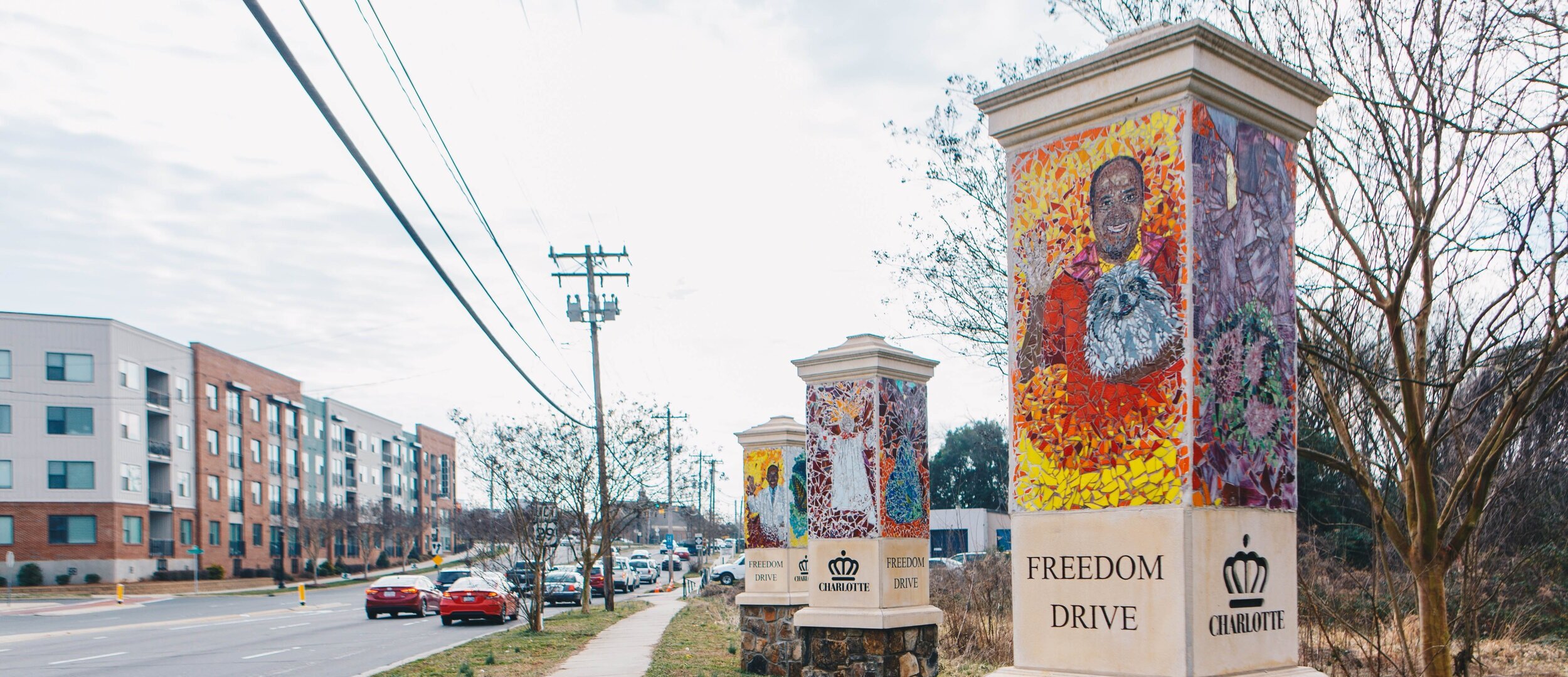Our key focus areas and why we do what we do
The release of the Harvard/UC Berkeley Report study ranking Charlotte, NC 50th out of 50 large US cities for economic mobility was a wake-up call for many across our city. It was this study that prompted our founding board members to begin convening to discuss tangible ways that they could personally, professionally and through their churches begin to address the challenge of upward mobility.
They quickly realized that they had much to learn about the challenges facing our city, and hired David Docusen, a pastor working in West Charlotte pursuing his PhD in the cyclical patterns of generational poverty. David and his family traveled around the US visiting different community development initiatives to understand which ingredients were making a dent on the cycle of generational poverty.
He reported back that if they were to do anything, that they should focus on one defined geography - and that they should go deep there as opposed to spreading themselves too thin. He also came to the conclusion that they should focus on the four, deeply interconnected areas of housing, education, employment, and health and wellness. Based on previous relationships and disparate outcomes, Freedom Communities defined its focus
along the Freedom Drive Corridor working in the two neighborhoods that fed Ashley Park School, Camp Greene and Enderly Park. With a defined geography and an understanding of some of the key focus areas to tackle, the next step was figuring out where to get started - where Freedom Communities could make the most strategic impact. We convened a few principals leading schools along the Freedom Drive Corridor to find out what else we needed to know. They told us two things that have influenced our initial focus as an organization.
The first thing they told us was that housing instability was one of the single greatest barriers to educational success. That in a population of mostly renters, rising rents were rapidly displacing families from their homes and children from their schools. In 2018, the kindergarten class at Ashley Park started with 55 children, and during the course of the school year 15 children left, and 9 children entered the classroom. Transience was not only affecting those who left and entered the classroom, but it also affected those who remained as their teacher had to spend a great deal of time catching up the newcomers.
The second thing the principals told us was that children were coming to kindergarten already behind, with many not knowing their letters, colors or numbers. One school leader discovered that many of the best readers at his school had come from the same 5-star preschool run and operated by a husband and wife team in the heart of Camp Greene. It became clear that quality early education was an essential ingredient to ensure long term education success. We later learned that Camp Greene and Enderly Park were “child care deserts” where nearly 6 children were vying for one slot at a quality early education center.
Our first two focuses of Freedom Communities came out of this meeting: building and preserving affordable housing, and expanding access to quality early education.
The third thing we focus on as an organization is serving as the “connective tissue”. There are many incredible organizations (public, private, faith) and people living and working in these two neighborhoods. However, nobody is waking up every day thinking about how we can convene and align these groups around a shared vision - except us. We wake up every day thinking about how we can bring together the community, and the various groups that work here.
We believe that everyone deserves equitable access to opportunity - and look forward to diving deep with you on our series that will explore the key tenets of our work and the ecosystem that knits them together.


